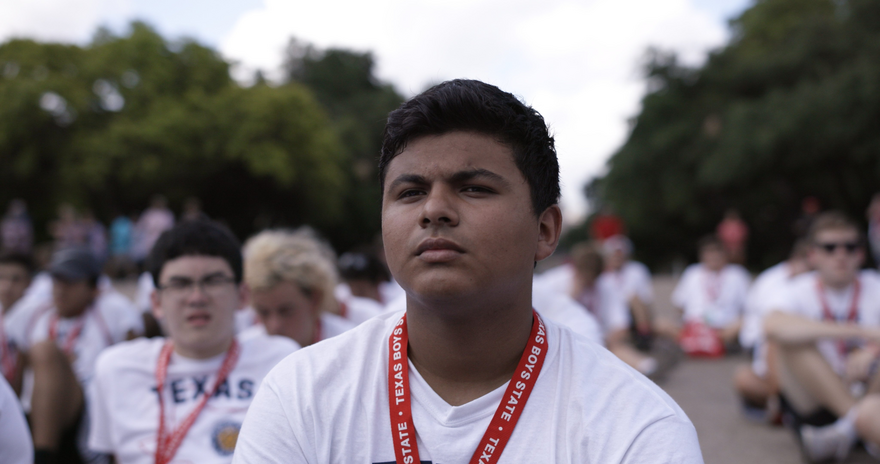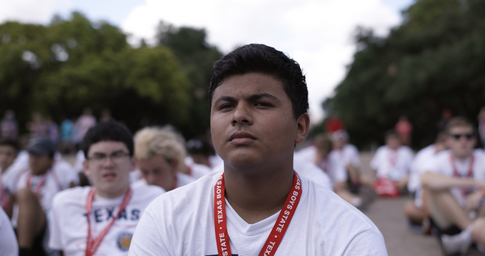Every year in Texas, thousands of high school boys gather together in a week-long elaborate mock exercise to build their own state government. A24’s “Boys State” follows several teenagers through the program in an observational documentary of debate, hope, perseverance and civic duty.
In a recent conference call with representatives of the press from a variety of universities, filmmakers Jesse Moss and Amanda McBaine ensured the documentary was an authentic depiction of the 2018 Texas Boys State week. While looking for subjects to be the main focus of the film, they hoped for students who were ambitious, smart and represented a diversity of backgrounds and politics to feature in the film. Nothing was scripted or planned in advance. Moss and McBaine let the event take its course, and hoped for the best outcome on camera.
What was created far exceeded their expectations. “Boys State” won the Grand Jury Prize for documentary at this year’s Sundance Film Festival and serves as a catalyst for important conversations, especially leading into the 2020 election.

Only high schoolers at the time, the film tells the stories of four main subjects: Ben Feinstein, Robert MacDougall, Steven Garza, and René Otero. A mix of race, socioeconomic status, and political values, these four challenged each other through their elected positions and campaigning process. The film speaks to more than just politics, but of their emotional experiences as well. They all admitted that, although the cameras may have had a slight impact on their character, they largely remained true to their beliefs. MacDougall even complimented Garza on his strong will, stating that ultimately led to MacDougall’s defeat.
The Boys State program has a significant impact on teenagers around the nation. According to Feinsten, it is “a crash course on civic duty.” It’s not just about the elections, but about patriotism, understanding democracy, and acknowledging diverse viewpoints. The film opens the viewer’s eyes to the harsh realities of elections. Feinstein stated that the experience made him realize that people underestimate how much people vote on policy and overestimate how much they vote on morals and integrity.
“It provokes powerful reflection,” Moss said.

What was the most powerful aspect, however, was how it formed a discussion of the forces. When you put people in a room together with differing views and tell them to agree, it drives a sense of self-reflection. There was a conflict of tribalism (McBaine often asked herself “Will this turn into “Lord of the Flies”, or will it get under control?”) and examples of chaos and “performative masculinity” in the film which forces us to realize what really matters: actual policy or political affiliation. Fienstien mentioned that one of the biggest tragedies in our society is how we represent our political parties. Politics should be separate from our social life, and we shouldn’t alienate ourselves from others solely on our political affiliation.
“In the end, I saw that people want the same thing, what’s best for their city, their state, and their country” MacDougall said, “It’s how to get there that is different.”

“The film is set in time, but hopefully it continues discussions on democracy and engagement. Democracy is not a spectator sport, and despite their differences, these [subjects] are engaged.” Moss stated.
BOYS STATE is an Apple Original Films and A24 Release. Now available on Apple TV+.


